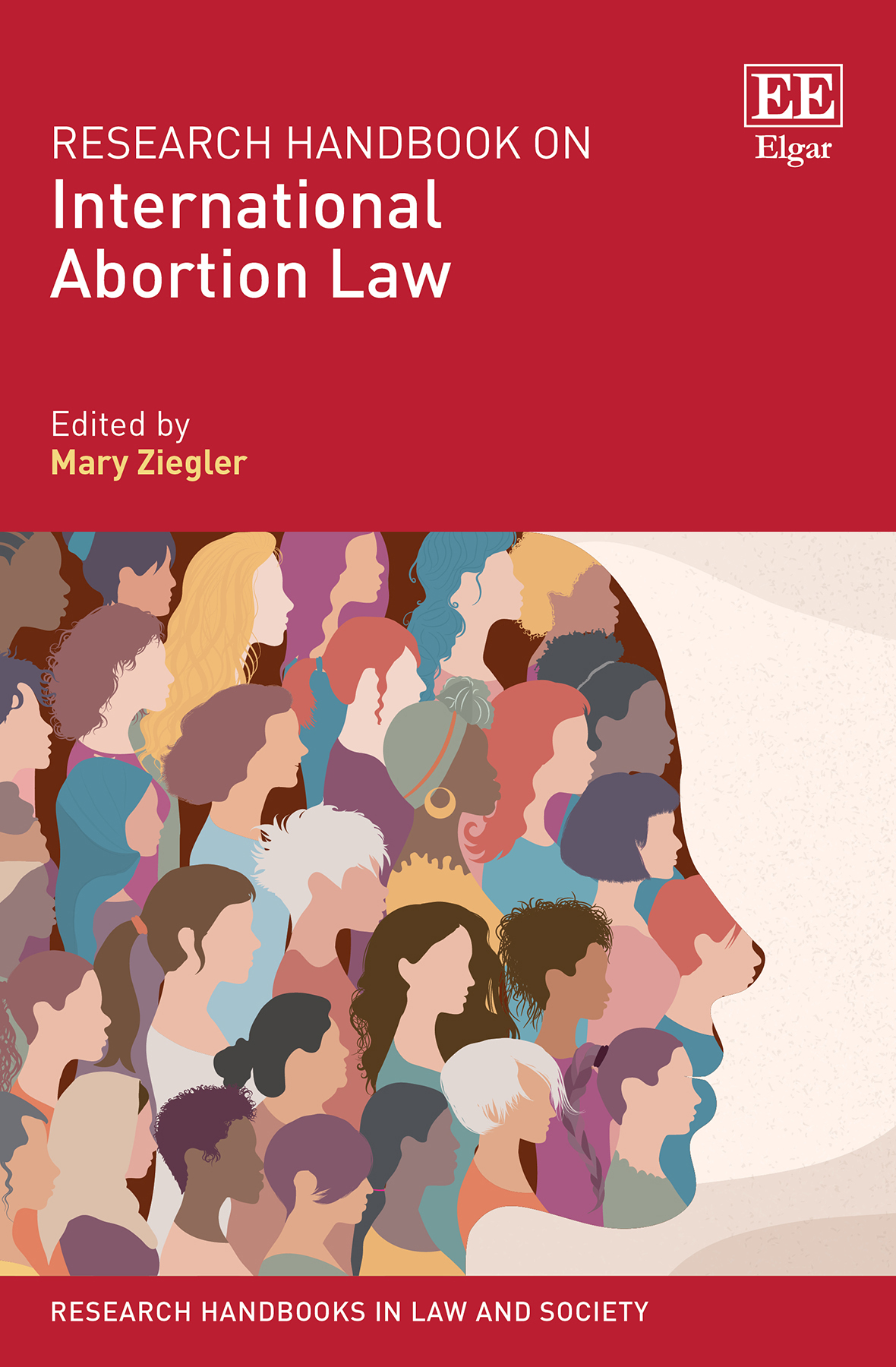Views
Book review: Research Handbook on International Abortion Law (Cheltenham: Edward Elgar Publishing, 2023)

Written by Mayela Celis
Undoubtedly, Abortion is a hot topic. It is discussed in the news media and is the subject of heated political debate. Indeed, just when one thinks the matter is settled, it comes up again. In 2023, Elgar published the book entitled “Research Handbook on International Abortion Law”, ed. Mary Ziegler (Cheltenham: Edward Elgar Publishing Limited, 2023). For more information, click here. Although under a somewhat misleading name as it refers to international abortion law, this book provides a wonderful comparative overview of national abortion laws as regulated by States from all the four corners of the world and internal practices, as well as an analysis of human rights law.
This book does not deal with the conflict of laws that may arise under this topic. For a more detailed discussion, please refer to the post Singer on Conflict of Abortion Laws (in the U.S.) published on the blog of the European Association of Private International Law.
In this book review, I will briefly summarise 6 parts of this book (excluding the introduction) and will provide my views at the end.
PIL and (De)coloniality: For a Case-by-Case Approach of the Application of Postcolonial Law in European States
Written by Sandrine Brachotte who obtained a PhD. in Law at Sciences Po, Paris and is a Guest Lecturer at UCLouvain (Saint-Louis, Brussels).
1. PIL and (De)coloniality in Europe
This post follows Susanne Gössl’s blog post series on ‘Colonialism and German PIL’ (especially s. 3 of post (1)) and offers a French perspective of the issue of PIL and (de)coloniality – not especially focused on French PIL but based on a francophone article to be published soon in the law and anthropology journal Droit et Culture. This article, called ‘For a decolonisation of law in the global era: analysis of the application of postcolonial law in European states’, is addressed to non-PIL-specialist scholars but builds on a European debate about PIL and (de)coloniality that has been nourished by scholars like Ralf Michaels, Horatia Muir Watt, Veronica Ruiz Abou-Nigm, as well as by Maria Ochoa, Roxana Banu, and Nicole Štýbnarová, notably at the occasion of the 2022 Edinburgh conference (reported about on this blog, where I had the chance the share a panel with them in relation to my PhD dissertation (see a short presentation on the EAPIL blog)).
The Dubai Supreme Court on the Enforcement of Canadian (Ontario) Enforcement Judgment
Can an enforcement judgment issued by a foreign court be recognized and enforced in another jurisdiction? This is a fundamental question concerning the recognition and enforcement of foreign judgments. The answer appears to be relatively straightforward: “No”. Foreign enforcement judgments are not eligible to be recognized and enforced as they are not decisions on the merits (see in relation with the HCCH 2019 Convention, F Garcimartín and G Saumier, Explanatory Report (HCCH 2020) para. 95, p. 73; W Hau “Judgments, Recognition, Enforcement” in M Weller et al. (eds.), The HCCH 2019 Judgments Convention: Cornerstones, Prospects, Outlooks (Hart 2023) 25). This is usually referred to as the “prohibition of double exequatur” or, following the French adage: “exequatur sur exequatur ne vaut”. This question was recently presented to the Dubai Supreme Court (DSC), and its decision in the Appeal No. 1556 of 16 January 2024 offers some useful insights into the status foreign enforcement (exequatur) decisions in the UAE.
News
Singapore Money Order Recognized and Enforced in China
The following post is reproduced from a recent update by the Asian Business Law Institute (ABLI).
Many thanks to Catherine Shen for sharing the information.
In a judgment (2023) Hu 01 Xie Wai Ren No. 28 dated January 8, 2025, the Shanghai International Commercial Court (Shanghai Court) recognized and enforced an order given by the General Division of the Singapore High Court after finding reciprocity between China and Singapore in the recognition and enforcement of each other’s civil and commercial judgments. Read more
The Conflicts Vineyard: In the Footsteps of Symeonides

It is a real pleasure to share a new essay by Professor Symeon C. Symeonides, written on the occasion of his retirement after fifty remarkable years in the field of conflict of laws. The essay, eloquently titled Reflections from Fifty Years in the Conflicts Vineyard, was presented as part of a symposium held in his honor in May 2024 at Willamette University College of Law, and sponsored by the AALS Section on Conflict of Laws. Read more
CoL.net Virtual Roundtable on the Commission’s Brussels Ia Report
In light of the Commission’s report on the Brussels Ia Regulation (first discussed here by Xandra Kramer), ConflictofLaws.net will be hosting an ad-hoc virtual roundtable
on Tuesday, 8 July 2025, 12pm–1.30pm (CEST).
The conversation will focus on the report published by the Commission on 2 June and its implications for a possible future reform of the Regulation.
The event will feature the following panellists:
Andrew Dickinson
University of Oxford
Stefano Dominelli
University of Genoa
Pietro Franzina
Catholic University of the Sacred Heart, Milan
Thalia Kruger
University of Antwerp
Tobias Lutzi
University of Augsburg
Everyone interested is warmly invited to join via this Zoom link.



